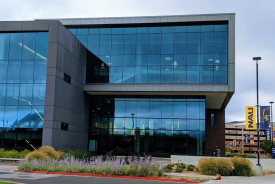Dr. Seth Eidemiller: Uncovering the Ways That Physicians Can Get Involved in Philanthropic Work
Created byOutside of direct patient care, many physicians are seeking ways to contribute through volunteering, financial support, education, advocacy, and nonprofit work. This engagement reflects a broader commitment to social responsibility and a desire to address disparities in health systems. By mentoring future doctors, participating in mobile clinics, or influencing public policy, Dr. Seth Eidemiller and other physicians are leveraging their expertise and resources to make a real difference.
Growing Interest in Philanthropy Among Physicians
More physicians are exploring philanthropic work as a meaningful extension of their medical careers. Many are driven by a desire to address unmet needs in their communities or to contribute to causes that align with their values. Their role as trusted voices in healthcare often positions them well to lead or support efforts that have a lasting impact. Some medical professionals are also motivated by personal experiences in their training or practice, which shape their commitment to giving back.
Volunteering Locally and Globally
Many physicians choose to share their clinical skills beyond traditional settings by volunteering in local and international communities. Whether it's staffing a weekend health fair in a rural town or joining a medical mission abroad, these experiences offer a way to make a direct and tangible difference. In many cases, these opportunities help doctors reconnect with the core values that drew them to medicine in the first place.
Organizations such as Doctors Without Borders and Remote Area Medical rely on volunteer physicians to reach communities with little or no access to healthcare. Some doctors participate during scheduled breaks or sabbaticals, using their time to provide care where it's most urgently needed. Others return regularly to the same regions, building trust and continuity of care.
In urban areas, mobile clinics and school-based health programs also benefit from physician volunteers who can address chronic conditions, offer screenings, and educate patients. These opportunities not only bridge gaps in care but also strengthen the connection between medical professionals and the communities they serve.
Donating to Causes
Dr. Seth Eidemiller explains that contributing financially to health-related initiatives is another powerful way physicians support philanthropy. Many choose to direct funds toward hospital foundations, community health programs, or nonprofits working to improve access to care. Their donations often reflect a desire to extend their healing reach outside the exam room.
Physicians often align their giving with areas of personal significance, such as cancer research, pediatric care, or mental health services. By supporting these efforts, they help advance medical innovation, fund patient support programs, and sustain critical services in underserved regions. In some cases, their contributions also inspire colleagues or patients.
Some opt to establish donor-advised funds, offering a more strategic way to manage charitable contributions. Through one-time gifts or ongoing support, these donations can drive meaningful change in the healthcare landscape.
Mentorship and Public Education
Mentoring is one of the most impactful ways physicians can give back, especially to the next generation of medical professionals. Guiding students or residents through the complexities of training not only enhances their development but also reinforces the mentor's own knowledge and leadership skills.
Some doctors extend their influence beyond the hospital by offering public health talks at schools, churches, or community centers. These sessions build trust and awareness around topics like preventive care, nutrition, and chronic disease management. By simplifying complex medical information, physicians can empower individuals to make informed health choices.
Engaging in Health Advocacy and Policy
Taking part in advocacy allows physicians to lend their voices to broader health reforms. By engaging with policymakers, participating in coalitions, or writing op-eds, they help shape decisions that affect patient care on a systemic level. Advocacy also gives them a platform to highlight issues they witness firsthand in clinical settings.
Some physicians have joined state health boards or volunteered with national associations to influence legislation related to public health funding, mental health services, or access to primary care. Their clinical experience brings credibility and clarity to complex policy discussions, often bridging the gap between lawmakers and frontline providers.
Launching or Collaborating with Nonprofit Initiatives
Physicians eager to create long-term impact often turn to nonprofit work. Some launch their own foundations to address specific health issues, while others partner with existing organizations to amplify efforts already in motion. These partnerships can lead to innovative programs that fill critical service gaps.
Dr. Seth Eidemiller understands that building a nonprofit from the ground up involves careful planning, from establishing a mission to navigating tax regulations and forming a board. Yet for many, the opportunity to lead a focused initiative makes the effort worthwhile.
© 2026 University Herald, All rights reserved. Do not reproduce without permission.









